The February 2024 issue of Assessor News covers 2024 assessor and moderation hubs, new videos on Aka Toi, Achieve Study Hubs, assessor spotlight, and more…
Assessor and Moderation Hubs for 2024
Careerforce registered assessors are required to attend training or participate in professional development to remain current in assessment practice. A great way to do this is by attending an Assessment and Moderation Hub (Wānanga Mātauranga).
Thanks to some of your feedback, we’ve introduced professional development topics, tailored to each session. Topics will be adjusted, depending on the needs of the attendees.
See the 2024 schedule and sign up >
New ‘how to’ videos on Aka Toi
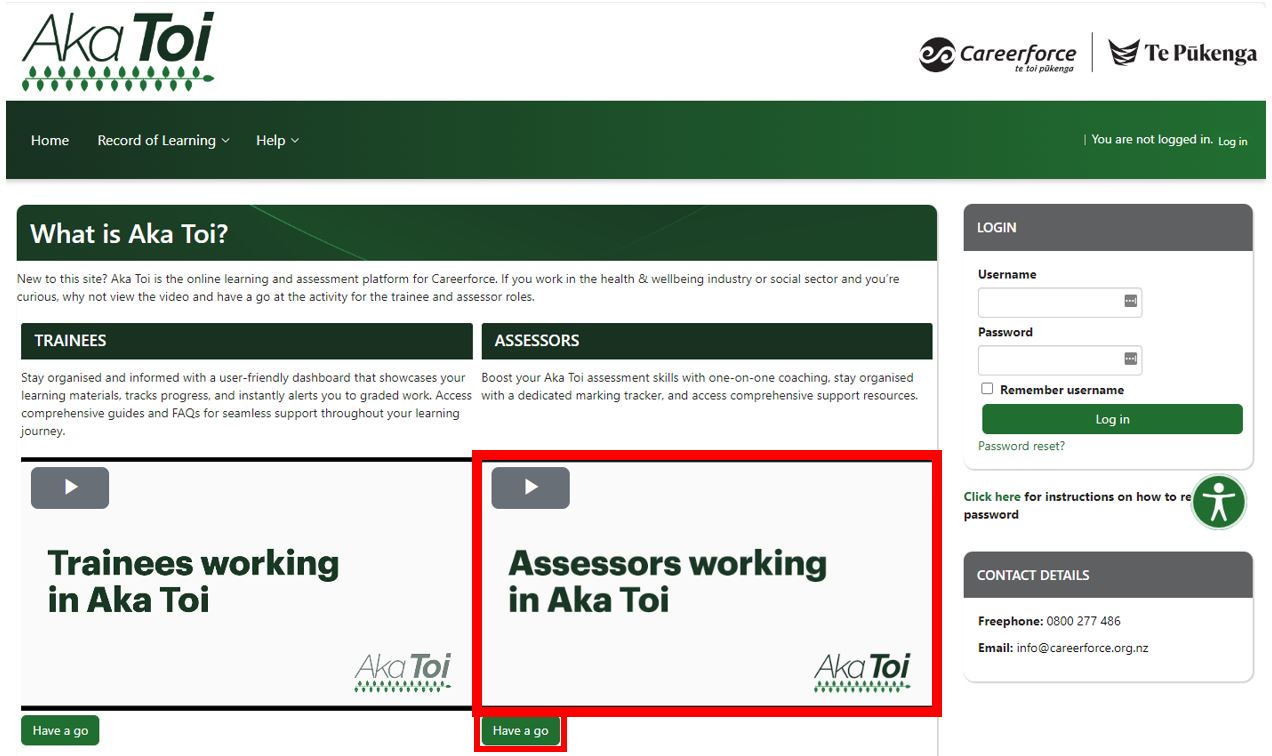
We’ve added two ‘how to’ videos to Aka Toi for newly registered learners and assessors.
If you’re a new Careerforce registered assessor, the video is a useful way to show you how to navigate the online portal. There’s even an option to ‘Have a go’ at some example marking.
Watch the new videos on Aka Toi >
Grow your pool of Careerforce registered assessors
Do you have colleagues in your organisation who are enthusiastic about lifelong learning, and are keen to help others reach their full potential, just like you are?
Would you like to encourage the advancement of your colleagues, and to help you in your role as an assessor?
- See our 2024 schedule of Initial Assessor Training courses
- Check out our resources on how to get started as a Careerforce registered assessor
- Our Learning Engagement Advisors are here to help grow your pool of assessors in your workplace
Why become a Careerforce assessor?
By contributing to the development of a more informed and competent workforce, you will help to ensure clients receive improved service and a better quality of care.
Additionally, becoming a Careerforce registered assessor recognises the level of skill and experience that you have in your field and contributes to your own professional development.
What is a Careerforce Registered Assessor?
A Careerforce registered assessor is an important part of workplace training. They evaluate the assessment evidence provided by a trainee and use this to determine competence against unit standards.
Assessor Spotlight: Christine Moss
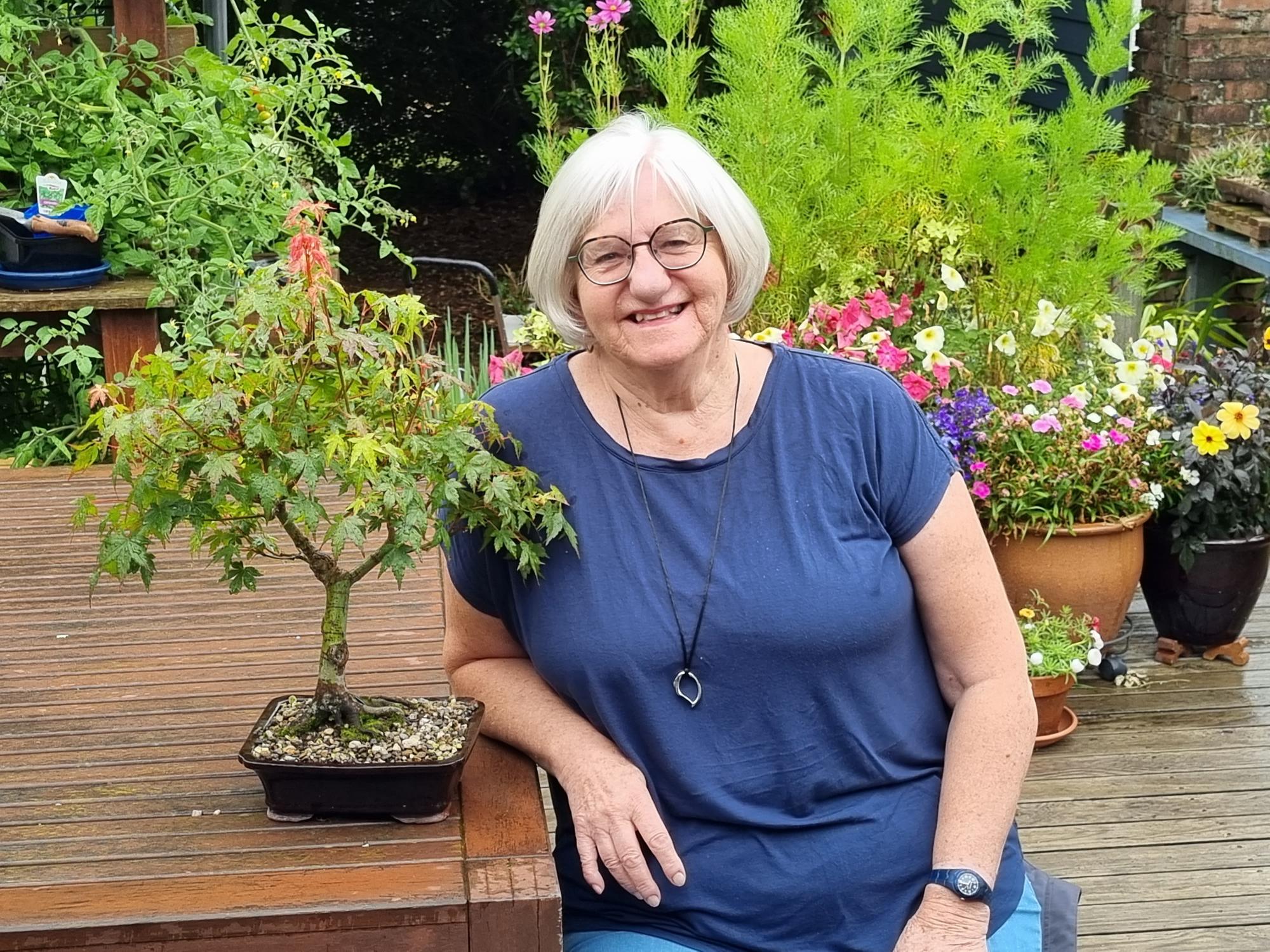 Meet Careerforce staff assessor, Christine Moss. After 17 years with Careerforce, Christine will be hanging up her assessor hat and leaning more into “yarn bombing” and other things, as she looks forward to her retirement…
Meet Careerforce staff assessor, Christine Moss. After 17 years with Careerforce, Christine will be hanging up her assessor hat and leaning more into “yarn bombing” and other things, as she looks forward to her retirement…
Where in New Zealand are you based? Just south of Palmerston North.
How long have you been a staff assessor at Careerforce? I have been a staff assessor for six years, although I have been with Careerforce for much longer than that, having started as a Careerforce Workplace Assessor in 2007.
Where were you before joining Careerforce? My mahi over the years has been largely focused on workplace learning. I was given a task many years ago, while working in a government department, of helping new appointees learn how to do the paperwork. I loved thinking of creative ways to show them the processes, and discovered I had a flair for mentoring and workplace learning.
Lots of twists and turns since then! So, I find myself now working from home, based just south of Palmerston North, supporting ākonga working on qualifications to support the profoundly important roles they have in supporting vulnerable people across the motu. I am constantly blown away and humbled when I read their case studies. They are skilled and dedicated people and I feel privileged to be able to play a part in enabling their skills and knowledge to be formally recognised by way of qualifications on the NZQA Framework.
Which qualifications do you mainly assess? I mostly support people working as Peer Support workers and those with roles supporting the homeless, victims of family harm, and severely underprivileged people in the community. The apprenticeship in Peer Support (Level 4) and the Diploma in Health and Wellbeing (Level 5) are my main focus. I notice an irony here. I currently support a cohort of Diploma ākonga at the Ministry of Social Development. The government department I mentioned in an earlier paragraph was the Department of Social Welfare (which later became the NZ Income Support Service and then WINZ). Full circle!
What gives you the most satisfaction from being a Careerforce assessor? Approaching the process at the outset can be daunting for people looking to pursue a qualification. Self-doubt and lack of confidence are common, and I gain much satisfaction from seeing them grow in confidence. After all, they are doing the job! All they have to do is present me, their assessor, with evidence that they have the required skills and knowledge.
Why do you think a qualified workforce is important? Kaimahi with qualifications hold much mana within the health and social services workforce. Having achieved a qualification with a well-defined set of standards gives their work much credibility and provides confidence and self-respect. This credibility flows on to the standing their workplace enjoys.
Funders look for community organisations with good standing and a qualified workforce when they are distributing the limited pūtea available, and service users can feel confident that they are going to receive a professional standard of care and support when engaging with services with qualified staff.
What do you think makes a positive difference to trainees doing their Careerforce programmes? It’s tempting for ākonga to attempt the assessments with knowledge they already have at their fingertips. And they do have plenty of knowledge!
However, I always urge them to make use of the readings in the learning sections for the modules. Not only does this confirm for them that they are already skilled and capable, a real confidence boost, but it gives context for the questions in the assessments.
I often hear the cry “I can’t figure out what the question is getting at!”. Sure, I can chat about what the question is getting at to make it clearer for the learner, but reading the information in the Learning Resources gives context and meaning behind the questions and so this common frustration doesn’t arise. It breaks my heart to read an assessment which is obviously well thought through and detailed but is way off track because the ākonga didn’t grasp the context of the module.
Any tips or advice for our amazing workplace assessors (especially for those that might be new to it?) Sometimes I must look for clarity in understanding what the questions in the assessments are getting at myself, to ensure that the answers the ākonga are giving are correct. It helps to look back to the unit standards sitting behind the module in this instance.
I have the NZQA website address saved as a favourite on my internet toolbar: www.nzqa.govt.nz In the search field I type in the unit standard number, look for the unit standard document and voila! The section on “Outcomes and performance criteria” tells me what is required of the ākonga to successfully meet the requirements of the unit standard. As an assessor I can be very flexible in accepting a wide variety of responses, but I am always mindful that the criteria in the NZQA unit standard is quite explicit and must be met if the unit is to be achieved.
Assessors have awesome responsibility. We support people to learn and achieve but we also have the responsibility of kaitiaki of the qualifications. Without conscientious marking of assessments ensuring the integrity of the qualifications people achieve, the qualifications aren’t worth the paper they are written on. I take this responsibility very seriously.
What keeps you busy outside of work? I keep busy outside of work. I have family living nearby with whom I keep in touch (although the teenagers have plenty of other things to do these days besides hanging with Nana).
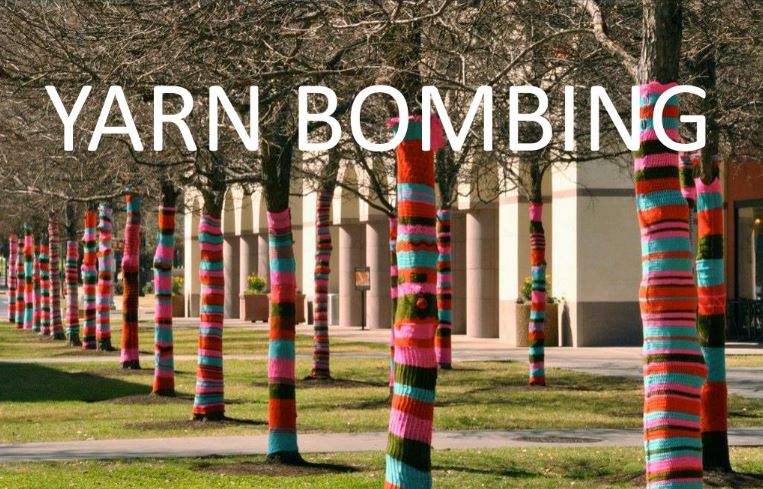 I grow bonsai trees and have a collection of specimens ranging from saplings (wannabe bonsai) to well-developed pieces of art that I have been training for up to forty years.
I grow bonsai trees and have a collection of specimens ranging from saplings (wannabe bonsai) to well-developed pieces of art that I have been training for up to forty years.
My quirkiest hobby is yarn bombing. A group of friends and I feel compelled to dress up statues and other stationary objects with pieces of knitting and crochet. We get a great kick out of our creations! I have been known to deposit pieces of crochet on fences, trees, and posts on my travels. This is “yarn-tagging” and I have adopted the nickname “Mossy Mischief” for this activity. It feels subversive and cheeky – I love it! You may find my tags in places like Castlepoint, Whangārei, the Catlins, even Sydney and Rarotonga. I have no intention of desisting either.
Retirement is on the horizon. I have plans to move aside and let someone else have a go at it later this year. It is great to feel that I am finishing my career doing something that has positive ripples throughout the community by enabling kaimahi in the health and social services sectors to strengthen their roles by gaining qualifications which ultimately support the most vulnerable in our society to flourish.
I can rest on my laurels, knowing that I have made a difference. Bring it on!
Want to feature in the next assessor spotlight, or know someone who should? Send us an email!
Communicating effectively with ESOL learners
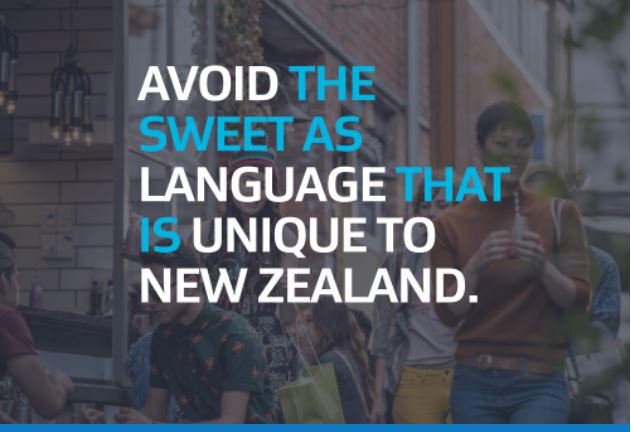
If you’re supporting trainees whose first language isn’t English, keeping your written and oral feedback clear, short and simple is important.
Immigration New Zealand has a suite of dedicated resources to help managers and workplace trainers communicate effectively with migrant staff.
Check out their ‘Keeping it Clear’ resources >
Programme updates and reminders
Reminder: Closure of Health and Wellbeing (Level 3) version 1 programmes
Following the extension of the Last Date of Assessment for the Health and Wellbeing Level 3 version 1 qualification, Careerforce will be accepting assessments from learners up until 31 May 2024 for the following programmes:
- Health Assistance (version 1)
- Support Work (version 1)
- Orderly Services (version 1)
- Newborn Hearing Screening (version 1)
- Dental Assistance (version 1)
- Vision Hearing Screening (versions 1 & 2).
After 31 May 2024, any learners who have not completed all of the required unit standards for their qualifications will be transferred to the version 2 programmes starting July.
Reminder: Closure of version 1 apprenticeship programmes on 31 May 2024
- NZ Apprenticeship in Community Facilitation
- NZ Apprenticeship in Community Facilitation – Disability Support
- NZ Apprenticeship in Community Facilitation – Diversional Therapy
- NZ Apprenticeship in Community Facilitation – Teacher Aide
- NZ Apprenticeship in Community Facilitation – Youth Work
- NZ Apprenticeship in Community Health Work (version 1)
- NZ Apprenticeship in Mental Health and Addiction (version 1)
- NZ Apprenticeship in Peer Support Work (version 1)
The following programmes closed on 31 December 2023:
- New Zealand Certificate in Health and Wellbeing (Advanced Support) (Level 4)
- Dementia LCP (Level 4) (version 1)
- NZ Apprenticeship in Healthcare Assistance for Aged Care – complex
- NZ Apprenticeship in Brain Injury Rehabilitation Support (version 1)
The following unit standards expired on 31 December 2023:
- US 28543 – Māori Operating Principles (Level 3)
- US 23922 – Manage the effects of Providing Support for people living with Dementia (Level 4)
The following programme is now available on Aka Toi:
- New Zealand Certificate in Health and Wellbeing (Level 3) Vision Hearing Screening
Your learners are invited to free Study Hubs in 2024

Do your trainees or apprentices need some extra support with their training programmes? Our Achieve Study Hubs are face-to-face sessions where they can drop in, ask questions, meet with other learners, and receive help with their learning.
Achieve Study Hubs are run all across Aotearoa
Our Achieve Study Hubs are scheduled across the country. Trainees and apprentices are also welcome to attend sessions outside their area. See the full schedule >.
Talanoa study hubs for Pacific learners
Are you supporting a Pacific learner? We have a Pacific team who understands Pacific learners’ needs and are here to help them. Our Pacific team runs Talanoa (study support sessions), and face-to-face and online Fono (workshops). You can see the 2024 schedule of Talanoa here. We are sending email invites for our Talanoa sessions to learners by region.
Noho marae and Wānanga mahi for Māori learners
Are you supporting a Māori learner? Our Rōpū Taupuhipuhi Āmio / National Mobile Support team provides options for kanohi-ki-te-kanohi (face-to-face) kaupapa Māori approach support through wānanga mahi and noho marae. The schedule for 2024 is here, and we are sending email invites to learners by region. As needed, we will provide extra support to any ākonga (learners) and ngā kaiaromatawai (assessors) in working with the Te Ao Māori unit standards.
See our noho marae and wānanga mahi schedule >
Te Pūkenga to be disestablished
In December, the new Government announced its intention to disestablish Te Pūkenga. Just as it was a very long process to establish Te Pūkenga as a legal entity, it will take time to disestablish Te Pūkenga and will require legislative changes.
While we remain a business division of Te Pūkenga for the time being, we have been given the very strong direction to just continue trading and operating as Careerforce as you know us, and as we have done prior to and during the reform process.
Join our Wednesday Hono Mai sessions
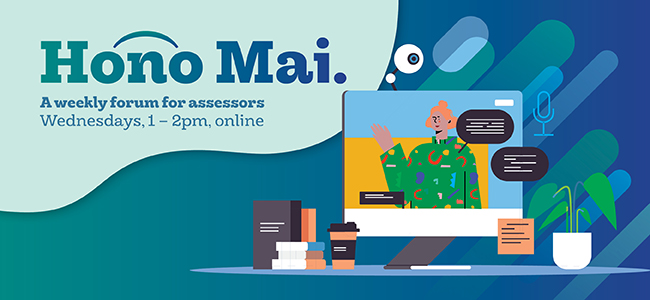

We do appreciate all the support and guidance you give to your ākonga. As usual, if have any questions, please don’t hesitate to contact us:
- Assessor Support: assessor-admin@careerforce.org.nz
- Moderation Support: moderation@careerforce.org.nz
Assessor News is a quarterly update sent to all Careerforce registered assessors. Archived copies of Assessor News can be found under Assessor Toolkit.

